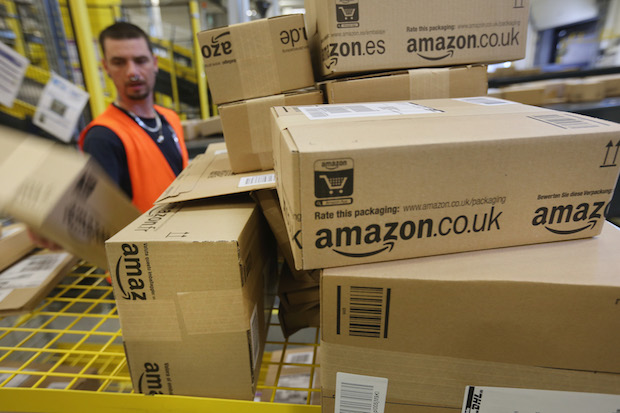Are the giant ‘Technology Trusts’ – Amazon, Apple, Facebook and Google – on the road to the monopolists’ breakers yard? It’s received wisdom they soon will be. As Edward Luce writes in the FT, ‘Big Tech is the new big tobacco in Washington. It is not a question of whether the regulatory backlash will come, but when and how.’
Delving into United States trust-busting history can help answer that question. Back in 1900, the Rockefellers pooled their copper mining interests with my (sadly, distant) cousin Adolph Lewisohn and a few others, founding a vehicle which would control an epic 70 percent of US copper output. And they trumpeted their rationale in a way which seems charmingly naïve to the modern reader: ‘The reason given for the formation of the United Metals Selling Company’, the New York Times reported on 3 February 1900, ‘is that it will aid the interested concerns “to avoid competition, and so get better prices”’. The Rockefellers and Lewisohns were out create a monopoly – and they didn’t care who knew about it.
Yet, as the early years of the twentieth century unfolded, United Metals’ founders changed their minds about the merits of owning a monopoly. From the sidelines, they witnessed quite a few being broken up. As early as 1902, President Roosevelt intervened to unravel J.P. Morgan’s railroad colossus, Northern Securities. And in 1911, American Tobacco’s monopoly was split into four companies, while the vast Standard Oil, the Rockefellers’ fiefdom over nearly every gallon of oil sold in the United States, was dismantled into dozens of regional businesses. The Trust-busting era was in full swing.
Fearful of the Trust-busters, United Metals’ owners changed tack. They settled for the cosy competitive security of oligopoly instead, allowing a few other companies to share in United Metals’ dominance of the copper business. That strategy paid off handsomely: United Metals’ market share peaked at 50% anyway, and in 1915, its owners merged it with Anaconda Copper, a publicly quoted giant which in turn became so profitable that by the 1920s it had become the fourth largest public company on Earth. The founders of United Metals were thus perhaps the first robber barons to reap the rewards of appreciating that oligopoly, not monopoly, has tended to be a much better strategy for long-term corporate rent-seeking.
Fast forward to today, and Anaconda’s global number four ranking belongs to Amazon, which is ‘rapidly eating the retail world’, according to MKM partners analyst Rob Sanderson. It’s predicted to account for 50% of US online sales this Thanksgiving and Christmas.
But recent experience has left me wondering if Amazon’s owners aren’t rather less fleet of foot than the Rockefellers were in avoiding the monopoly commissioner’s gimlet eye. That’s because it’s not just Amazon’s ever-growing share of the retail market which is highly problematic. Its sheer pervasiveness is beginning to jag. This summer, when our paddling pool needed disinfecting, I touched my iPhone’s Amazon app. Twenty seconds later, I’d ordered liquid chlorine from Amazon, nicely sealed in a UN-approved hazardous chemicals container. Or so I thought. In fact, I’d transacted with a microbusiness on Amazon Marketplace (as an extra-curricular activity, Amazon is eating eBay too). The chlorine arrived not in the promised sealed Hazchem container, but in a pair of leaking screenwash bottles, encased in a foul-smelling box which our cleaner unwittingly left to seep out over the kitchen counter.
There’s scant left of the kitchen now: a £15 purchase on Amazon led to £10,000 in damages. Believe me, I’ve tried to distract myself from the fate of our dream kitchen. But I found Amazon’s tentacles are inescapable. Researching the chlorine vendor kept me on Amazon, since it hosts the UK’s Companies House via its giant Web Services division (soon it will be hosting your HMRC tax data too). My vendor went bust last year, but still operates under its liquidators’ supervision, so I downloaded the long list of unpaid liabilities, which I shall be joining. Then, as I waited for Amazon Prime Now to deliver my dinner, I consoled myself by watching Halt and Catch Fire, a drama set in the 80’s computer revolution, which streams on Amazon Prime Video. But when the doorbell rang, it wasn’t dinner, but yet another arm of Amazon – a book for my wife.
You get the picture. Even the Rockefellers couldn’t have dreamt of such omnipresence. And Amazon seems to be intent on utter domination in every market it enters. Perhaps that’s its mistake: as the United Metals episode shows, the world has been surprisingly tolerant of oligopolies. It’s taken decades for UK politicians to wake up to the fact that many of our key markets are horribly oligopolistic, and that upsetting these oligopolies might be rather good for consumers. Yesterday, when George Freeman, the Prime Minister’s policy chief, resigned, he railed against Mrs May for her failure to attack ‘the dominance of too few big companies in markets such as energy, house building, banking, telecoms and utilities’.
Mr Freeman is right to be frustrated. Politicians will attack would-be monopolies far more readily than quiet oligopolies. As for Amazon, its occasionally disingenuous interactions with customers are unlikely to hold it back. But, just like the brazen monopolies of the early 1900s, it has rung the dinner bell for a feast for politicians to dig into. And that feast has just begun.






Comments